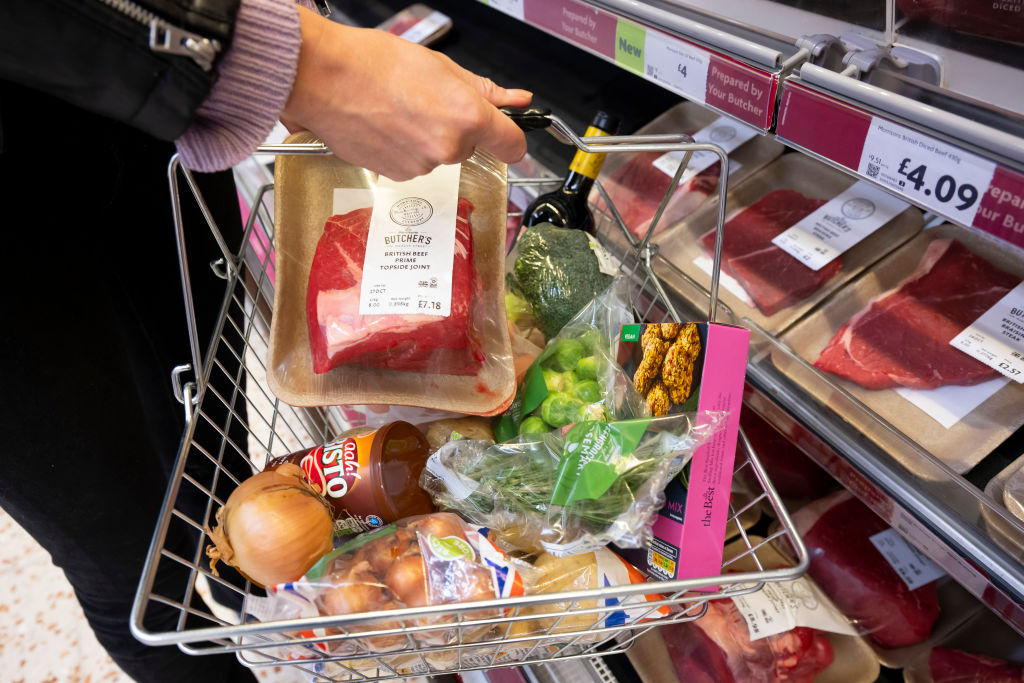Teasing supermarket execs won’t stop inflation, it’s suppliers we need to grill

Supermarket bosses are an easy shot, but its suppliers making profits which would dwarf those of Tesco or Sainsbury’s, writes Simon Neville
I love a good select committee. Nothing screams “grab the popcorn” like the chance to watch big beasts of industry face tough questions from politicians, pinning down crucial details on major issues and giving them a kicking in the process.
These bosses manage to avoid the same level of scrutiny when faced with the media. They can get up and walk away, or simply avoid your calls. If they do deign to give you some time, this will be no more than 15 minutes, lest you ask anything too difficult.
Instead the Business and Trade Committee on Tuesday morning was a great chance to hear supermarket bosses justifying their role in a cost-of-living crisis that is seeing food inflation at record highs.
But from the start, it was a disappointment. Only David Potts, chief executive of Morrisons, turned up in person. Sainsbury’s, Tesco and Asda all sent along senior people – just not their chief executives. Admittedly, Asda cannot seem to convince anyone to become its CEO at the moment.
As a result, those attending appeared keener to avoid a dressing down from their bosses back at their headquarters afterwards than actually engaging with the questions being thrown their way. But the questions themselves were equally weak. Food price inflation is a big, complex topic. It encompasses numerous avenues of enquiry from labour costs, energy prices, logistics and supply chains, farming, environmental factors, geopolitics and more.
Rather than focusing on a handful of topics, however, the select committee opted for a machine gun approach of showering bullets in the direction of the witnesses and hoping some would hit. None did.
The topics ranged from grandstanding about fuel prices, whether it was right for supermarkets to make a profit at all, workers’ rights, the price of eggs, convenience stores and the difference between statutory versus underlying profits.
All we learnt was just how expensive eggs have become and how many times the supermarkets referred to being price competitive with Aldi.
It was incredible how often food “commodities” were referred to yet at no point did anyone discuss the price of actual commodities like wheat, sugar, coffee or soy. The closest we got was a brief mention of the price of a barrel of oil.
Politicians are turning their attention onto supermarkets because they are an easy target for a kicking. As the biggest private sector employers in the country, MPs can attack them for poor treatment of staff. As the biggest food sellers, they can be accused of profiteering when prices are high. And with their huge networks of forecourts, rising fuel prices can also be an easy target for criticism.
The brand recognition is great too. If a politician says: “I went into my local Tesco and the price of my weekly shop was outrageous” they will get far more cut through. Good luck to one saying: “I was looking at the price curve for global wheat futures and can’t believe the price of bread hasn’t fallen”.
But the problem is, politicians need to be focusing on the latter statement – the supply chain – rather than the former.
The supermarkets in front of MPs made the point that the UK grocery sector is the most competitive in the world, with profit margins of around 3 per cent. Meanwhile, suppliers are recording profit margins closer to 20 per cent.
The business committee would have a far better understanding of what is driving inflation by grilling the chief executives of the suppliers rather than supermarkets – even if fewer people in the public will know their names.
They could even consider inviting commodity traders in, who can talk them through commodity pricing and give a better picture of just how much a bag of sugar is actually costing a manufacturer. Then they will realise where the lion’s share of inflation is coming from. If you need a hint: it’s not the supermarkets.
Equally, the Competition and Markets Authority could start an inquiry of their own into the sky-high prices of food. Naturally, it too would start with the supermarkets but perhaps a better move would be the beginning of the supply chain, not the end.
If they manage to rule out suppliers enjoying bumper profits by taking advantage of high inflation by pushing through unjustified price rises, then, by all means, they should turn their attention onto the supermarkets.
The grocers sometimes need a good kicking but we need to make sure our collective boot isn’t better deployed elsewhere first.